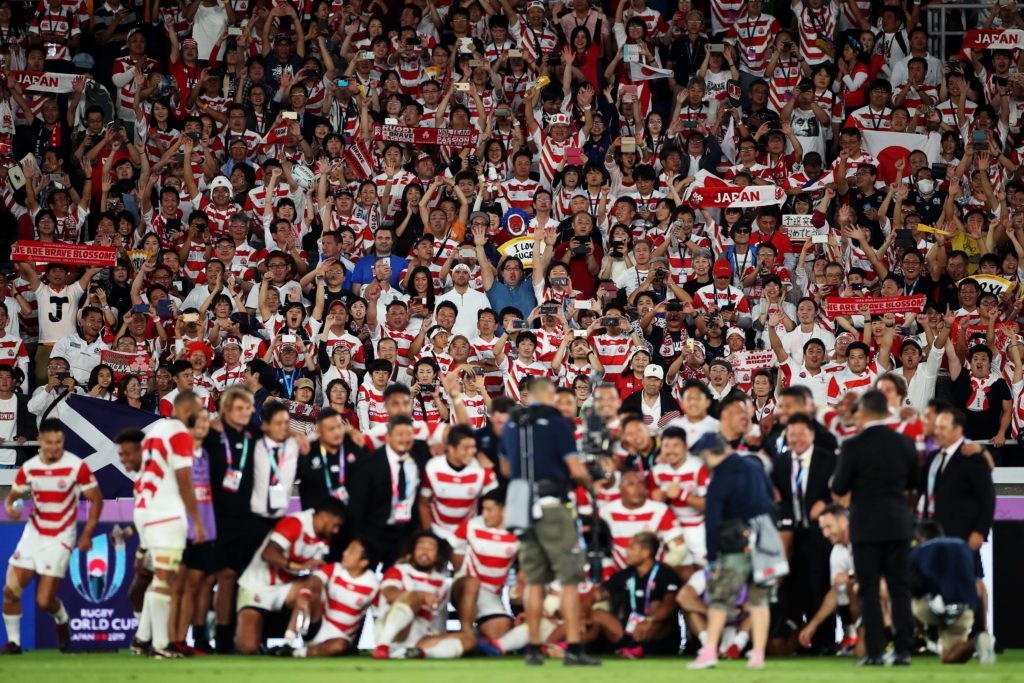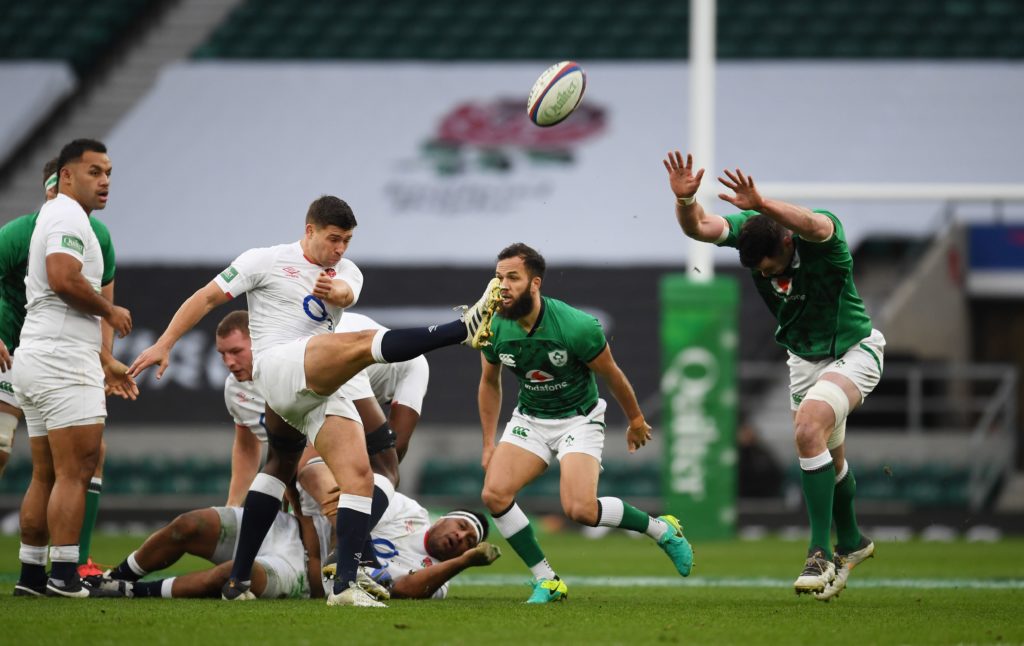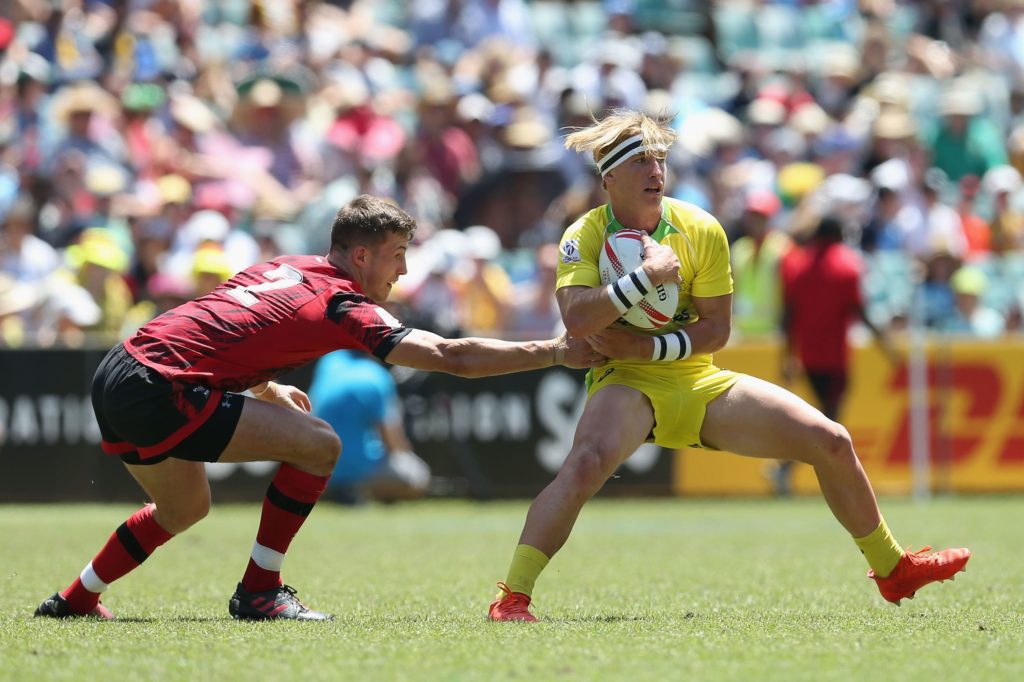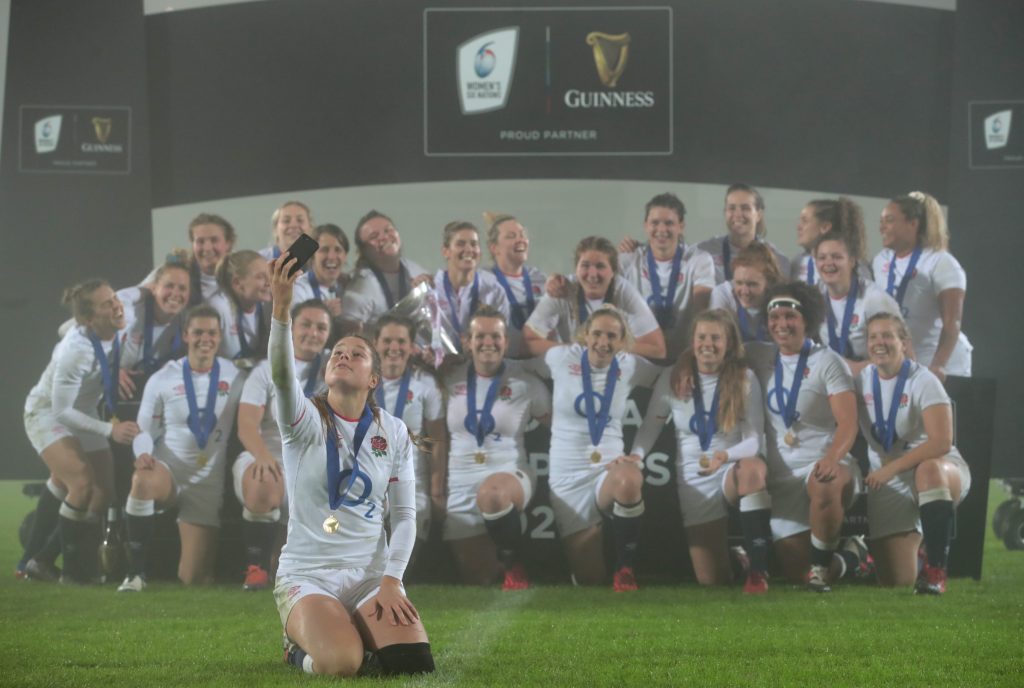World Rugby’s offices in Dublin are placed just off St Stephen’s Green, right in the heart of a bustling city steeped in history. In it, as you’d expect, is a wood-panelled boardroom where the shape and course of the game has been decided since going professional in 1995. For nearly 18 of those 25 years, one man has stood, largely in the shadows, tasked with trying to lift standards of the ’emerging nations’ around the world. For all the hard graft, it is sometimes a thankless task.
Mark Egan was a fine lock in his time, good enough to earn an Oxford Blue, so accusations that he was ‘just a suit’, without a feel for the game, would have been wide of the mark but the Dubliner, who started out as a Sevens World Series manager in April 2002, years before it became a multi-million-pound global jamboree, has overseen a period of huge change and tumult from those same corridors of power. He has been deployed to rugby outposts all over the world to understand the governance and complex local cultures that seem far removed from the comfy environs of Tier One nations.
In his early years at the organisation, it was about extending the World Series and importantly successfully lobbying for rugby’s inclusion into the Olympic Games. He got to see the world through a different lens, whether it was in Kenya, Georgia, Fiji, Tonga or Samoa. He pressed the flesh in the name of spreading the rugby gospel.
For Egan, who had lived, worked and played rugby in Japan, the 2019 World Cup was a personal success and a milestone for all the work he and his team had been doing.
In 2005, the high-performance investment programme was set up after a lucrative 2003 World Cup , where, despite a successful tournament, results on the field were chastening, with Tier One nations crossing the 60-point barrier on 13 occasions against the emerging nations. Egan’s breadth of experience across the organisation saw him rise to Head of Competitions and Performance, before his crowning moment, the 2019 World Cup in Japan.
For Egan, who had lived, worked and played rugby in Japan, it was a personal success and a milestone for all the work he and his team had been doing but, personally, he’d decided it was time to move on. After being asked by CEO Brett Gosper and Bill Beaumont to help with the restructure and recruitment process, Joe Schmidt was installed alongside New Zealander Nigel Cass as competitions director.

Having officially left at the end of October, Egan’s transition period with World Rugby is set to formally end this month. If any legacy knowledge is needed, Egan has said he’ll be available but, looking ahead in uncertain times, he will be supporting the IOC (International Olympic Committee) in Tokyo, where he is working as a technical delegate for World Rugby delivering the shortened format to the Games. Most of his time, however, will be spent with the Japanese Rugby Union as a strategic advisor, where his remit will be to work with them commercially and, as part of that, his biggest challenge will be getting them into regular, meaningful top-tier competition. The XV caught up with him days before he formally left World Rugby.
The XV: When did you decide the time was right to leave the organisation?
Mark Egan: I decided to leave World Rugby in January 2020 after a successful tournament in Japan. I was due to leave in April and had planned to go travelling with my wife but then Covid hit. Bill and Brett asked me to stay on to get us through the worst of it, so I was tasked with rescheduling the Sevens calendar and addressing financial issues with emerging nations. The ship was steadied by October and now Nigel (Cass) and Joe (Schmidt) are on board.
How perilous has this pandemic been to rugby’s standing in professional sport?
Short term, it has been catastrophic. The Test fixtures have been the economic engine of the unions and World Rugby, so once you stop crowds going into venues and international travel, the situation very quickly becomes grave, particularly for the Sevens World Series. Thankfully, the 15-a-side game is up and running at the elite level but it has also been catastrophic for the club and community game in many countries. Looking at the bigger picture, as humans, we are prone to disease and unfortunately it has happened in our lifetime. Saying that, we will get it under control. Crowds will return to venues and international travel will resume but it will take time. It maybe three years until we see 10 World Sevens tournaments a year, globetrotting around the world and 80,000 fans walking into stadiums with no social distancing, but rugby will return.
What effect has Covid-19 had on the emerging nations?
Even before Covid, managing Unions’ finances was a balancing act but this was shock to the system. Those with cash reserves, like most companies, could ride it out but others were in turmoil. I spoke to George Nijaradze, the former president of the Georgian Union, who said it had been absolutely catastrophic for them. Most emerging Unions get a bit of sponsorship but heavily rely on government funding to help play the players. That money is no long there because governments are putting money towards fighting the pandemic. Of course governments understand the benefits of sport but they have to focus on what is absolutely necessary to keep people active. High-performance systems and coaching are considered luxuries in a crisis. On the upside, it has given competition organisers a chance to push the reset button. We saw that with the quick turnaround in the Autumn Nations Cup.
Is rugby in a position where it will have to remarket itself so as not to lose too many players and supporters?
I don’t think people are going to be rushing in through the gates. There will be caution but personally, I would attend a rugby game in February or March if there was social distancing and I had a mask on. Come next November, hopefully there will be 50 per cent capacity at the Aviva Stadium. We want to get people back down to their local club, having a beer and renewing their memberships but we have to be innovative about the type of rugby we offer to bring people back. This is the big challenge. We will have lost a lot of players who have just lost the routine of getting out there.
How do you view the game right now? Is it a case of having to accept everything is imperfect?
The game evolves and goes in cycles. We certainly missed the energy of Japan and the athleticism and offloading game of Fiji in the Nations Cup. If you’d been watching the Rugby Championship, with games in the sun and full stadiums and compared it with empty stadiums where it’s dark, raining and there are impenetrable defensive brick walls, it’s tough. With no crowds, the game was really put under the microscope. There was no colour, no distractions, no panning around the stadium and a cacophony of noise. We have to ask ourselves, is that the kind of rugby that is going to attract people to come back to the sport, or attract new audiences? I think the amount of kicking in the game is a concern. It reminds me of 2007, when there were 68 kicks in a World Cup semi-final. If you look at the stats, it’s getting back there. You also have to factor in that since the autumn Tests were introduced in 2004, we’ve been used to seeing Australia, South Africa and New Zealand. They’ve been sorely missed.

Do sunlit uplands lie ahead?
One of the good things that came out of the pandemic was seeing, at a high level, governance and unions working together. A Calendar Working Group was established and I was involved in all of those discussions. Firstly, we had to deal with the rescheduling that needed to happen around the summer and autumn tours. There was also an opportunity for Six Nations and SANZAAR to converse. The upshot was that we agreed that we were all in this together. Everyone was suffering. Credit should go to Bill Beaumont and Bernard Laporte for organising that.
Were any advancements made on the world calendar?
World Rugby had put forward the World Nations Championship concept two years ago and it was knocked back, but that’s back on the agenda. Looking at the international window, the question is how could it work better? If you combined July and November into one Test window, how that would affect the clubs? What kind of competition model could we put in place that would retain the integrity of the Six Nations and Rugby Championship? Outside of the status quo, how could we create a more meaningful annual tournament that could integrate Japan, Fiji and Georgia, or another emerging nation, based on merit? That’s well underway. There were another couple of models that we looked at – some more feasible than others – and I think a decision will be made in May 2021.
Have the domestic leagues of England and France been brought into the process?
Yes, the clubs have been involved in this process. I know there was a lot of criticism from PRL (Premiership Rugby) and LNR (Ligue Nationale de Rugby), and there were threats of legal action but they are sitting at the table now as part of the working groups. It’s a bit of a slow-burner but it’s a huge step for World Rugby. I know there’s a lot of sabre-rattling in the media, but good progress is being made. Everyone is concerned about protecting the integrity of the World Cup. We have to ask ourselves, ‘Do fans want another trophy-lift competition?’ There’s always people with different agendas but for the sake of the game, they all need to work together and I’m sure they will.

Is progress being made for the emerging nations?
I would say so, yes. Georgia improved in every game of the Nations Cup. They were at a huge disadvantage coming in terms of preparation. Take England, they took over the Lensbury for a million quid over two months. Georgia arrived the week before the tournament but they’re not complaining. If the emerging nations are going to commit to some kind of new competition they need as much time to prepare as well as the established nations. We need to get Fiji and Japan into a regular competition and that solution is more than likely with SANZAAR. It may happen sooner than later but it has to make financial and commercial sense. No one is going to be taking any risks over something that will make a financial loss. If South Africans can join a European competition, is it possible for Fiji to join Super Rugby? That has been discussed, I know NZ Rugby have run a tender process. Hopefully in 2022 there will be a Fijian team and a Pacifika team. Domestically, for Japan, they have a well-funded company competition but they need a layer above that to kick on.
Did you see ‘Ocean’s Apart’ and did you think it gave a fair representation of the work done?
I did see ‘Ocean’s Apart’ because I’ve working with the Islanders for nigh on 20 years. I visit Tonga, Samoa and Fiji regularly – I’ve seen workings on the ground; I’ve visited union officials, coaches, locals and I’ve seen the facilities. I thought it was very one-sided. When they interviewed Vincent Fepuleai, the CEO of Samoa Rugby, what they didn’t mention was the interview took place in the £1.5million facility World Rugby funded. Maybe Epi Taione, the former President of the Tongan Rugby Union, could look at himself in the mirror and look at how he ran that Union when he was president. There are some good administrators in the Island Unions who do an incredible job in very challenging circumstances, but there are some well-documented issues in the media about how some of the Unions are run, especially Tonga. Fiji, Samoa and Tonga are not first world economies, they have different economic challenges to say England, Wales, Australia and New Zealand. Unless you go there and meet the people, it’s difficult to really get a picture looking at a documentary like that.
Did it, however, raise some issues?
Yes, of course, there’s no question about that. World Rugby are certainly aware of them. When the teams come together for international competition they need more support. The problem is they don’t have the commercial revenues coming in through the door because they don’t have regular international competition. When they bring the teams together for the autumn Tests, they need to have money to pay the players and install high-performance support. The fact is, World Rugby cannot directly pay the players. It can go towards support staff, facilities and technical support but they need to do it through their commercial programmes to pay the players, which is difficult because of the lack of regular competition.
How important is expanding the global footprint of the international game?
It is something Bill Beaumont, and Bernard Lapasset before him, take very seriously. The challenge for rugby is that it’s a dynamic, contact sport, which is also hugely technical – you can’t pick up a new nation just like that. Look at Japan, they’d been playing rugby for 120 years, they didn’t come out of nowhere to become competitive. Countries like Brazil, India and China are long-term projects and Sevens will be the way to go, not 15-a-side. World Rugby get a lot of funding through their Olympic sport status, which helps get rugby on the school curriculums. For that reason, we need a robust Sevens game and to get the World Series back up and running. At the moment you can’t make a living unless you’re playing in the World Series, so we have to look at how we can introduce a layer below it. There are a number of interested parties looking into setting up a professional franchise to feed into a World Series. A successful Tokyo Olympics is paramount.
Along with Sevens, the other main area of growth has been the women’s game, is that still a key focus?
The big opportunity is the women’s game. We are expanding the World Cup to 16 teams in 2025. If you’re going to struggle to get male players to play the game, there are lots of female athletes who would like to play Sevens and go to an Olympics, or go to a World Cup. World Rugby launched a plan two years ago, to increase the playing numbers and a present a compelling case for sponsors to invest in women’s rugby. In its own right, the Women’s World Cup is a fantastic property. The best rugby I saw was in Belfast for the England v New Zealand final and the France v USA third-fourth place play-off. There were 18,000 fans there. We need to get that message out there. Regardless of what happens, money has been put aside for the women’s game to develop.

How do you see rugby’s broadcast future in what is a very fragmented landscape?
I’m not a broadcast sales expert but it is a big conundrum. There is a willingness to put everything on the table in terms of what the model can look like. The problem is it needs to be additive to what’s currently there. No one is going to put their rights in the pot if they’re not going to get more money out of it. The Nations Championship concept we drew up at World Rugby was a real figure on the table; £6billion from marketing company InFront, over 12 years. The Unions would probably bite your hand off for that now if that was raised now. I don’t claim to be an expert in commercial rights but everyone has to have an open mind.
Do you see top-level competition leaving free-to-air TV?
The Unions are mindful about getting the community game back strong. You need mothers to fall in love with rugby again and bring their kids down to training. You need terrestrial free-to-air broadcast for people to see the game and promote it. You can’t just throw everything behind a paywall and think everything is going to be OK – cricket has found that to its detriment. With Amazon Prime, having paid some decent money for the Nations Cup, I’d be interested to know what they thought of it and whether it increased their subscriber base. It was great for the Six Nations and others will be looking on with interest.
Player welfare and concussion has been at the forefront of the news agenda in recent weeks, how do you view the work done?
One of the best pieces of work World Rugby have done during the past six or seven years was the HIA (head injury assessment). It was innovative, ground-breaking stuff over an issue that needed addressing. It’s a contact sport and there are going to be clashes of heads. I had a few concussions myself when I was playing, but there are now systems in places that I wouldn’t have had available to me when I was knocking about. We now have the Hawk-Eye system, medics on the sidelines spotting in case there’s something the referee or the coach didn’t see. You can’t be complacent and you always need to keep reviewing and looking at this. I do think the high-tackle framework was right. We had to lower the tackle height. The athletes are only getting stronger, both at elite and community level, andwe need to make sure it’s a safe game for people to play. Injuries will happen but as long as they’re spotted and treated it can make a huge difference.
More from Owain Jones
If you’ve enjoyed this article, please share it with friends or on social media. We rely solely on new subscribers to fund high-quality journalism and appreciate you sharing this so we can continue to grow, produce more quality content and support our writers.


Comments
Join free and tell us what you really think!
Sign up for free